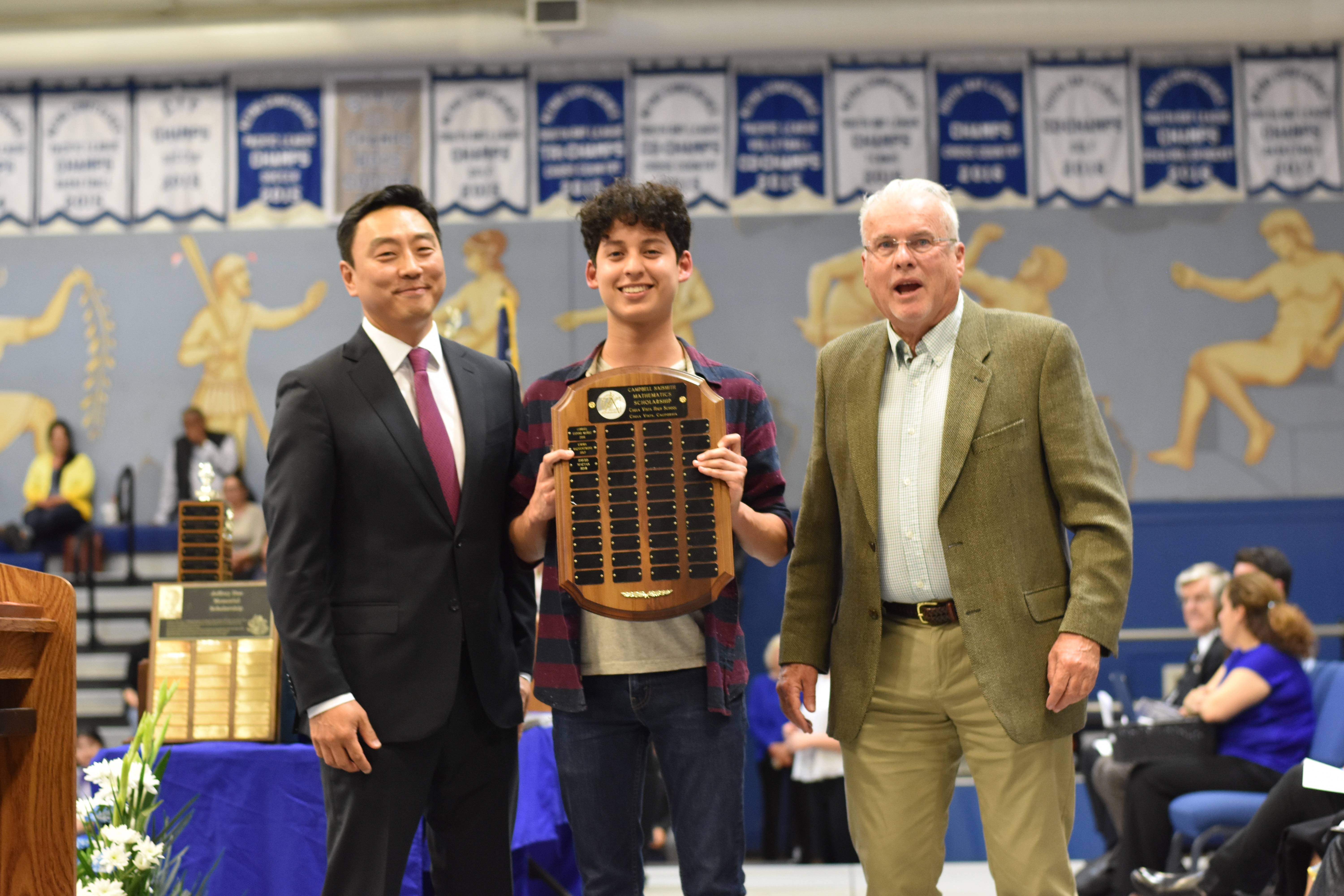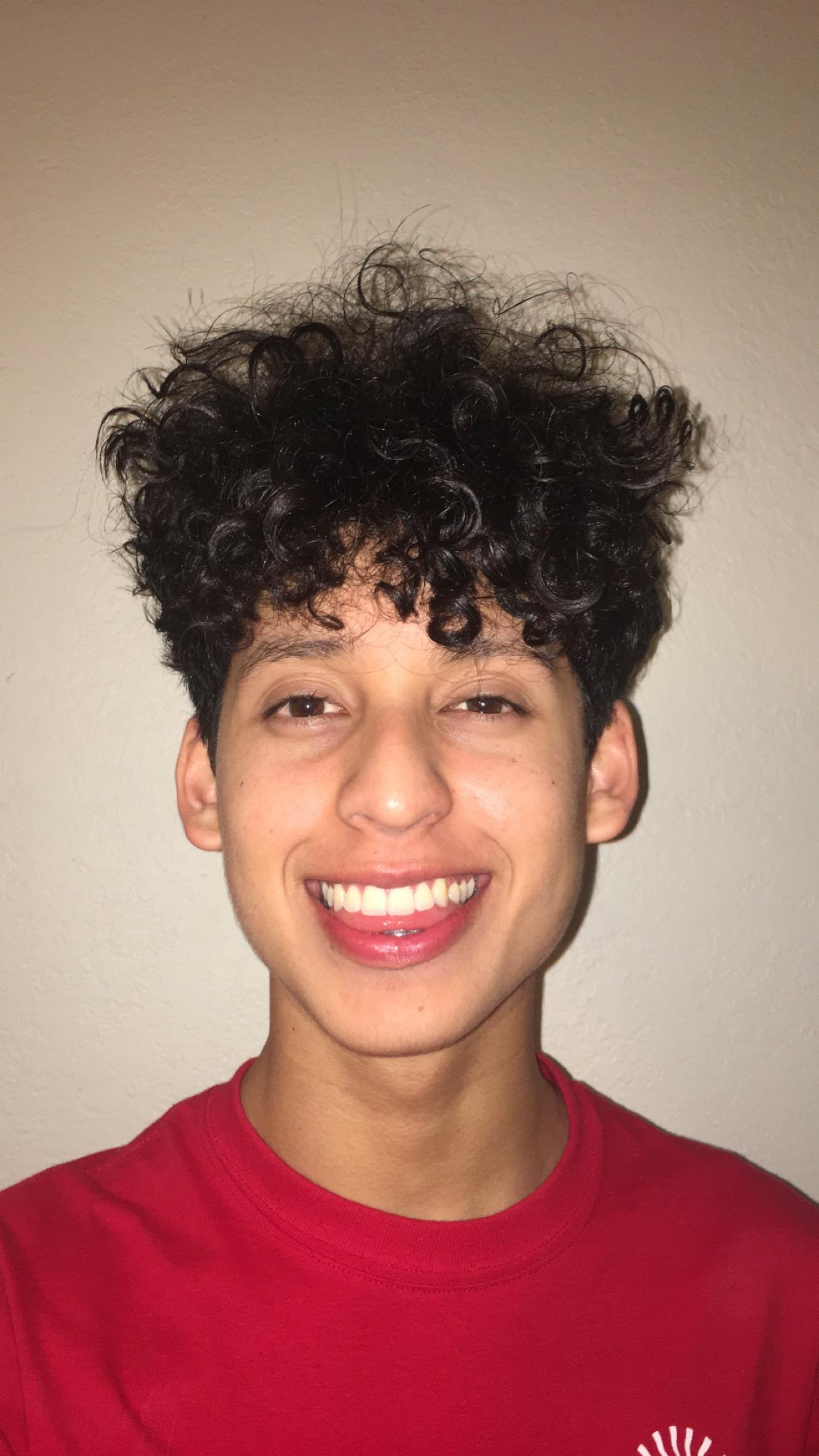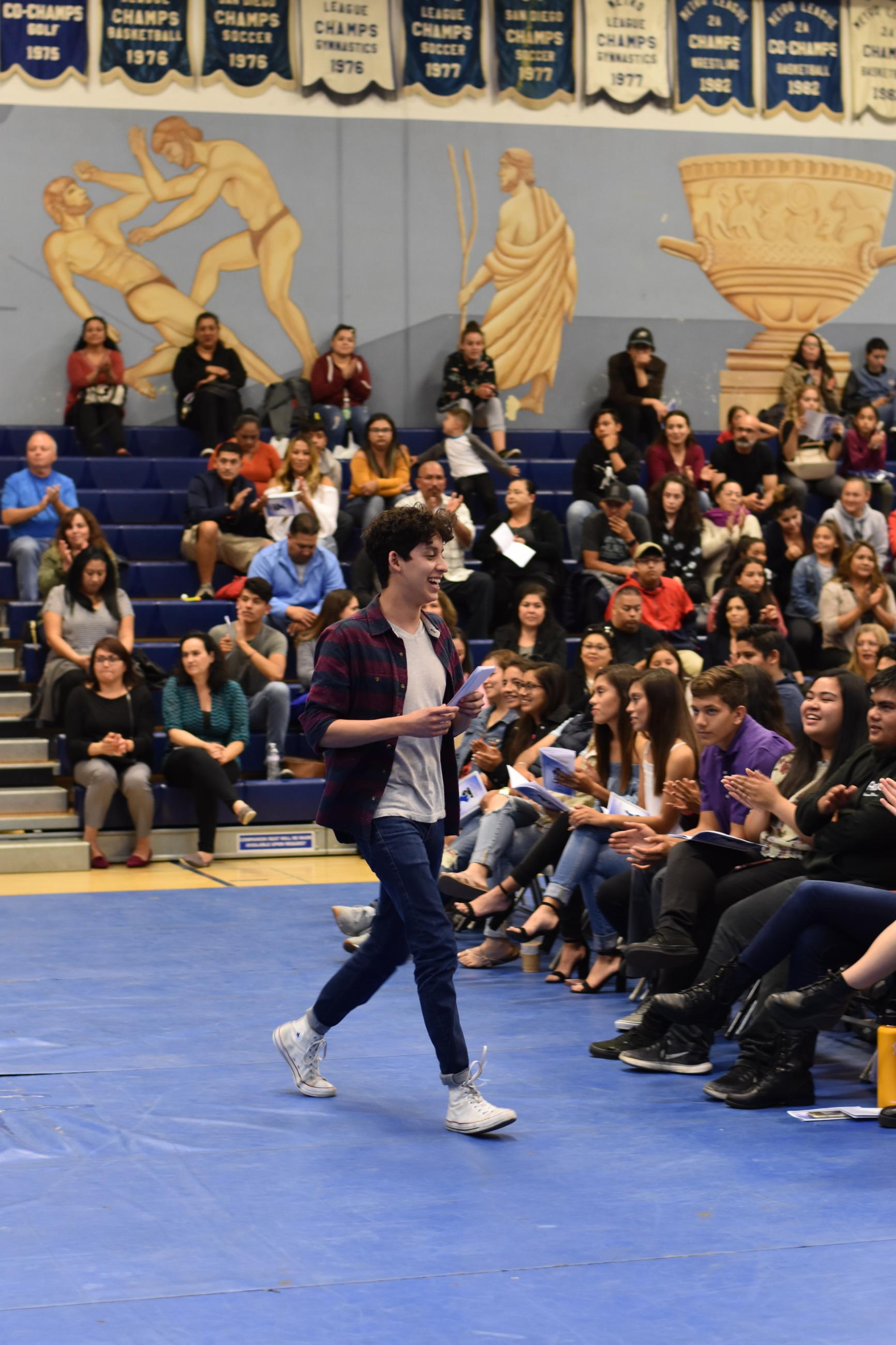David Macias, winner of the 2018 Campbell Naismith Mathematics Award from Chula Vista High School donated through the generosity of Chang Lee.
Pictured Right: Chang Lee, David Macias, and Campbell Naismith



Response of David Macias to Scholarship Winner Questionnaire
Response to question #1:
Although my taking on of loads of AP courses in high school was partly due to the fact that I wanted to boost my GPA, the main reason behind my extensive involvement in mathematics was my deep love for the subject. And that passion for subjects like statistics, chemistry, and calculus honestly developed through the help of my dad. In fact, some of my earliest and most profound memories with math were when I would ask my dad for help with the multiplication tables in elementary and solving for variables in seventh-grade pre-algebra. I remember practicing with him every night when he arrived at the house from work. If I’m being honest, I also remember crying in the bathroom a few times when I felt frustrated and didn’t understand how to solve a problem. But I also remember dying to know the answers to my homework and refusing to give up. And when I was finally able to figure out the answer, I remember feeling a rush that made me want to solve the next problem, and the next, and the next. It was during this period that my curiosity in the fields of math and science truly flourished, and by the time I entered high school, working on tough word problems had genuinely become one of my favorite ways to de-stress from all of the extracurriculars that I was involved in at the time.
Response to question #2:
As a nursing major, I am no longer taking math. Nonetheless, my high school mathematics experience has still had a huge impact on my ability to adapt and succeed in nursing school. For one, it was through tough AP classes such as calculus AB, BC, chemistry, and statistics where I developed study habits that continue to work for me to this day. It was in those very classes where I learned that practice makes perfect and that I had to earn the grades I wanted. Moreover, it was while I was trying to grasp difficult concepts and solving problems for these classes that I began learning how to think both critically and outside the box. And in the case that I wasn’t able to figure out the answers or did bad on a test, I learned how to deal with failure. All of these skills are crucial for success in college, which is why even though my credits for AP calculus don’t count towards my degree, I am glad that I decided to take them in high school.
Response to question #3:
For starters, make friends and surround yourself with people who want to succeed academically. If you haven’t started doing this yet, then I guarantee you that the moment you do you will observe immediate improvements in your study habits and grades. The reason I say this is because people are like sponges. If your friends always do their homework, participate in class, and are involved in extracurriculars, there is a high probability that you will, in turn, start absorbing those positive behaviors. Second, remember that practice makes perfect. No one masters a skill overnight. I’ve met so many students who take notes in class but never review them, and make flashcards that they only look over on the day of the test. The fact of the matter is that most teachers give you everything you need to get a perfect score on an exam, all you have to do is put in the work. And even if you do understand something the first time it is being taught, it is important that you make a little bit of time to review and/or practice the material every single day. I say this because there are many studies that show that people forget 50-80% of what they learn in a day. And last but not least remember that failures are only failures if you don’t take it upon yourself to figure out what you did wrong and keep trying but with a different approach. 🙂